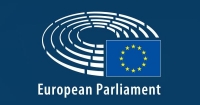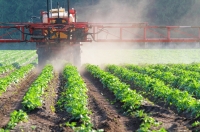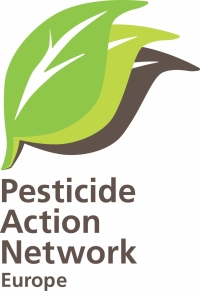Press releases
Today, PAN Europe and the civil society[1] applaud the European Parliament for standing up for the European citizens and adopting a resolution that addresses a long-known concern: daily exposure to endocrine disrupting chemicals (EDCs) may cause harm to ourselves, our children, the environment and all its species.
A world’s water day worthy of its name: Protecting our waters from pesticides
Water is essential for life. Yet, intensive agricultural practices release tons of pesticides into our water resources every year putting the aquatic environment and all life that depends upon it at great risk. The fact that just 40% of the water tested in Europe is in ‘good ecological status’, is a disgrace.
Today marks the first day of “Pesticide Action Week” (1), a ten-day celebration of activities for a pesticide-free world. On this day, Pesticide Action Network (PAN) Europe urges EU Member States and the European Commission to take the first step and ban all non-agricultural uses of pesticides.
The European Parliament’s Committee on the Environment, Public Health and Food Safety (COM ENVI) has today adopted an opinion on the reform of EUs Common Agricultural Policy (CAP). PAN Europe welcomes the vote and emphasises that by lifting the environment, health and climate ambitions of the CAP reform, COM ENVI has contributed to create longer term perspectives for both farmers and all EU citizens and taxpayers.
The European Parliament has today adopted an own initiative report on the implementation of the EU Directive on the Sustainable Use of Pesticides (SUD). PAN Europe welcomes the vote and emphasises that this report can help to speed up implementation of the Directive, which is long overdue.
The EU Directive on Sustainable Use of Pesticides (SUDP) was adopted in 2009 (1) with the aim of reducing the use and harmful impacts of pesticide use across the EU. Article 15 of the SUD calls for the establishment of a set of harmonised risk and use indicators to monitor the impact of the Directive on pesticide use.
Within the Standing Committee on Plants, Animals, Food and Feed (SCoPAFF), held on 25th January 2019, the majority of EU Member States approved the following set of Harmonised Risk Indicators (HRI) (2):
Members of the Environment Committee (ENVI) adopted yesterday an own initiative report on the implementation of the EU Directive on the Sustainable Use of Pesticides. While the report does contain some interesting recommendations, it falls short in one essential way: defining what Integrated Pest Management really is and providing concrete proposals on ways forward!
Europe must urgently improve its pesticide authorisation system to ensure protection from harm caused by pesticides is the message sent by the European Parliament today, who adopted the PEST Committee report calling for independence, objectivity, transparency and better use of science in the whole procedure. This is a milestone in the long-needed pesticide risk assessment reform in Europe, highlights PAN Europe.
A new White Paper, coordinated by Pesticide Action Network (PAN) Europe and produced by a group of 24 experts from the field of pesticides, risk assessment, human and environmental health identifies the many shortfalls in the safety assessment of pesticides in Europe that lead to dangerous substances being used in open spaces.
A new White Paper, coordinated by Pesticide Action Network (PAN) Europe and produced by a group of 24 experts from the field of pesticides, risk assessment, human and environmental health identifies the many shortfalls in the safety assessment of pesticides in Europe that lead to dangerous substances being used in open spaces. The analysis also proposes concrete solutions on how to improve the pesticide risk assessment in Europe in line with the mandatory requirements of EU law.




